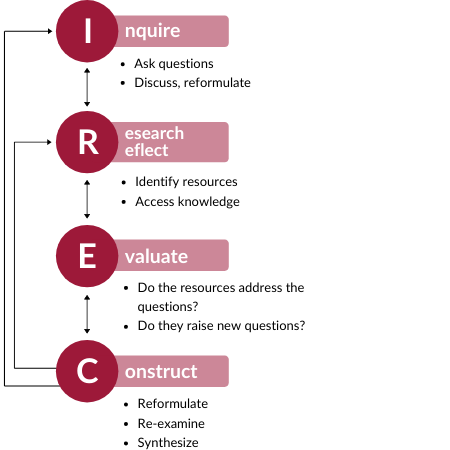Inquiry-based learning goes against the traditional educational style that we as students have experienced throughout our educational careers. In the traditional style of learning, the teacher presents the facts and their knowledge about a particular topic and guides their lesson from there. Inquiry-based learning is a more active, student lead form of learning where the students present the questions, scenarios, and problems to the teacher, with discussion stemming from the students. This style of learning works on the basis of the teacher presenting a general theme and students guiding the lesson from there through their participation and engagement with the theme. Lee et al. (2004) defined inquiry-based learning as “an array of classroom practices that promote student learning through guided and, increasingly, independent investigation of complex questions and problems, often for which there is no single answer.” This style of learning provides the students with support while they learn the important and crucial life skill of self-direction (Queens University, n.d.). A common concept discussed when talking about inquiry-based learning is the acronym “IREC.” This highlights the four essential elements of inquiry-based learning. As described in the image below, “IREC” suggests a structure for the learners that helps guide them through their inquiry-based learning experience, while also allowing students to develop skills around each of these elements, building on to their toolbox of life skills.
Regarding my group’s Learning Design Blueprint, I believe that this style of learning does not fit our blueprint design as our design is a set, structured activity. Although it is set up and allows for questions from young students, it is not designed to be taught through student-led questions and the support of the teacher.

References:
Queens University. (n.d.). Inquiry-Based Learning. Centre for Teaching and Learning. Retrieved February 8, 2023, from https://www.queensu.ca/ctl/resources/instructional-strategies/inquiry-based-learning#:~:text=What%20is%20Inquiry%2DBased%20Learning,by%20themselves.%20Lee%20et%20al.
Hi Megan, I think you did a great job explaining inquiry-based learning! I appreciated the way you connected the concepts to real-life skills and benefits for students. I also like how you incorporated the elements of IREC as a diagram. I found your final conclusion regarding the compatibility of inquiry-based learning with your group’s Learning Design topic thoughtful and reasonable.
Hi Megan! Excellent overview of Inquiry-Based Learning! I appreciate that you put it in your own words with the support of sources and explained how it differed from traditional teaching methods. It would be helpful if you could provide specific examples of activities teachers can use. Are there any challenges in implementing inquiry-based learning?